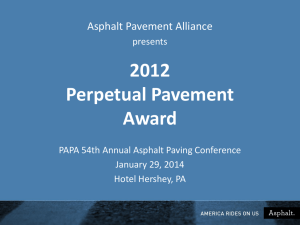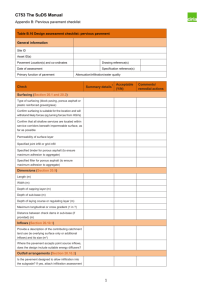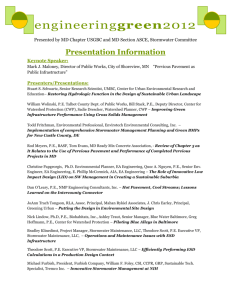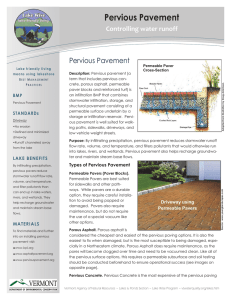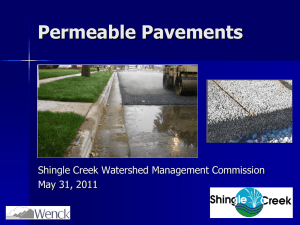GREEN Pervious Pavement: When it Rains, it Drains What is
advertisement
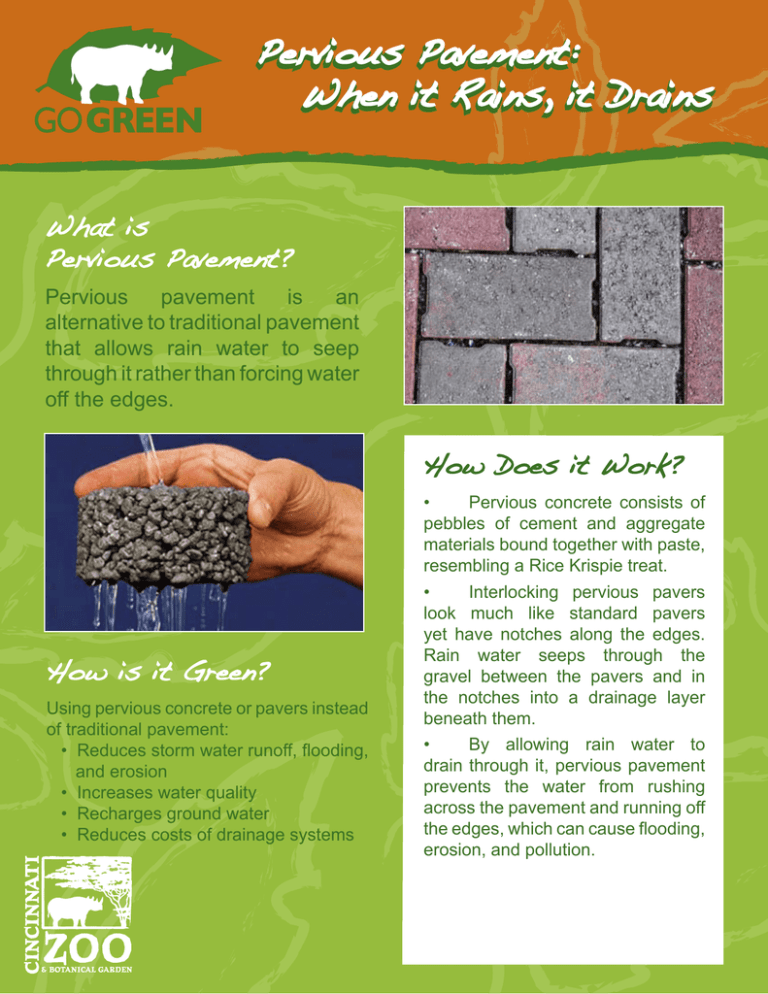
GO GREEN Pervious Pavement: When it Rains, it Drains What is Pervious Pavement? Pervious pavement is an alternative to traditional pavement that allows rain water to seep through it rather than forcing water off the edges. How Does it Work? How is it Green? Using pervious concrete or pavers instead of traditional pavement: • Reduces storm water runoff, flooding, and erosion • Increases water quality • Recharges ground water • Reduces costs of drainage systems • Pervious concrete consists of pebbles of cement and aggregate materials bound together with paste, resembling a Rice Krispie treat. • Interlocking pervious pavers look much like standard pavers yet have notches along the edges. Rain water seeps through the gravel between the pavers and in the notches into a drainage layer beneath them. • By allowing rain water to drain through it, pervious pavement prevents the water from rushing across the pavement and running off the edges, which can cause flooding, erosion, and pollution. Why Would I Want Pervious Pavement? Pervious pavement fulfills the same purpose of traditional pavement with additional environmental and economic benefits. Also, rain water stored beneath pervious pavement can be used for irrigation, if desired. How Do I Get Pervious Pavement? It is recommended that one consults a civil engineer to ensure proper residential pervious pavement installation. Reading Rock 4600 Devitt Dr. Cincinnati, OH 45246 513.874.2345 www.readingrock.com Two Brothers Brick Paving Dayton, OH (937) 310-2272 Cincinnati, OH (513) 258-0685 Columbus, OH (614) 429-1181 Indianapolis, IN (317) 215-0819 www.twobrothersbrickpaving.com How Much Does It Cost? Currently, the initial purchase of pervious pavement costs $2.00 to $3.00 per square foot, which is twice that of typical pavement. However, you will spend less overall as the need for drainage pipes and retention systems is reduced. How Do I Maintain It? Spurlino Materials 513-422-6677 4000 Oxford State Road Middletown, Ohio 45044 www.spurlino.net Mulch and pavers that allow grass to grow between them are less expensive alternatives that allow rain water to seep through into the ground below where a hard surface is not necessary. It is important to maintain the permeability of pervious pavement for it to be effective. Be sure to keep the pavement free of leaves, dirt, and debris that could fill up the drainage holes by sweeping the surface often. Vacuum about four times a year to remove debris. Replace stones between pavers as necessary. In winter, it is especially important that the holes are not blocked so that water drains quickly and does not become trapped and freeze within the pavement layer itself. Snow actually melts and drains more quickly on pervious pavement than traditional asphalt. For More Information To learn more about pervious pavement, go to www.perviouspavement.org. Learn more about how to Go Green at www.cincinnatizoo.org. Click on Saving the Earth, and then on Go Green. 3-2010

